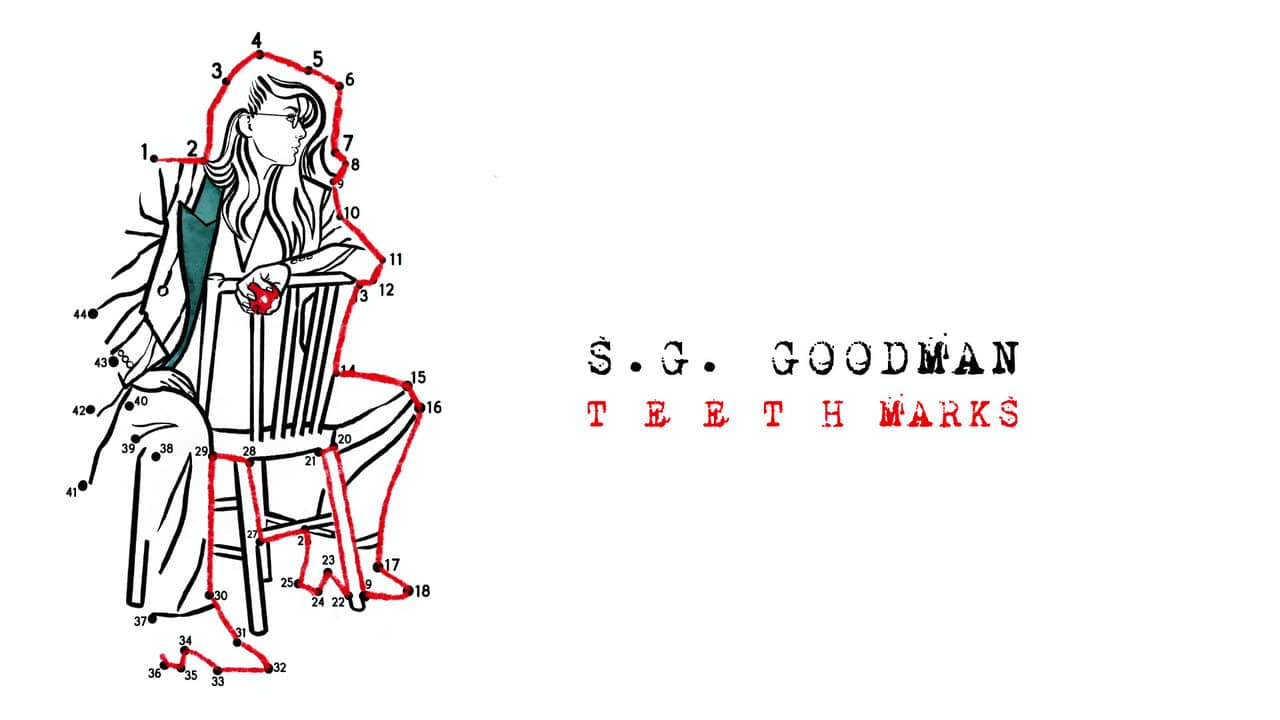S.G. Goodman’s Old Time Feeling (2020) remains one of the most jarring debuts in recent memory. The Kentucky singer-songwriter’s progressive politics find their voice in an equally forward-thinking spectrum that’s ethereal and elemental, country and rock n’ roll, whatever those tags mean these days. With producer Jim James (My Morning Jacket) behind the boards, she manages to have both ways, she’s the romantic and the agitator. It’s hard to imagine a more complete love song than the doo wop-inflected “Space and Time,” or a song more caustic than the title track or “The Way I Talk”, two middle fingers to Mitch McConnell’s then-35 years on the job. Here, Goodman is on the verge of breakdowns and breakthroughs. The old South is killing her, but she isn’t going anywhere. The steady drum beat that closes the finale “Big Girl Now” suggests she’s a survivor, biding her time.
This month Goodman delivers her follow-up, Teeth Marks, a record that outstrips the expectations set by OTF. She again strikes a balance between fighting for her heart and the disenfranchised. But this time around, Goodman and her band are loud. The guitars are amplified, untethered, and slinky, chords crashing on cue as if predestined. There’s a lived-to-tell authority in Goodman’s voice, a delivery that wavers between confession and rebellion. Occasionally, she gives herself over to an all-or-nothing tremor that recalls Janis Joplin or Bright’s Eye’s Conor Oberst. And her words are more formidable and full-throated. Too often, critics refer to a singer-songwriter’s lyrics as poetry, an unfair burden to hang on someone. In Goodman’s case, she’s a poet, honest, evocative, and muscled.
Much of Teeth Marks deals with the aftermath, how one endures after the fall. “Teeth Marks”, whose chiming arpeggios introduce the album, delivers an inventory of the scars– physical and mental– that are the reminders of good love gone bad. Bite marks, “little souvenirs” from bed, remain. As do the echoes of gaslighting– “maybe in time you’ll see things my way”– that linger long after the last goodbyes. But Goodman sounds unbowed as she subverts a southern colloquialism:
Well, I laughed a bit
When you pulled that card
Telling me you’re gonna bless my heart
Well, it is
Oh, it already is
The floating “Heart Swell”, another breakup song, dwells in the remnants. Alone with the hum of cicadas, she isn’t overwhelmed with the slow relief that comes with resolve, but instead a gorgeous litany of near-misses– “It’s more like when you’re driving and you fade across the double line/The feeling rushing over when you make it back across in time”– and fruitless journeys—“Like an immigrant heart that keeps trying to get back home.”
Yet in the album’s first barnstormer, “All My Love Is Coming Back to Me”, Goodman sings of reward, her heart on fire. She “answers the call of rock and roll,” as does the rest of the band. The song clocks in at less than 3 minutes, 30 seconds, but somehow has the heft of a mini-epic. There’s a for-the-hell-of-it drum roll that carries the band into an end-jam that evokes Crazy Horse’s most ragged and dangerous moments.
Along with these personal matters of the heart, Goodman never loses her sense of place, her spot in a rust belt that’s straitjacketed by “traditional” values and decimated by self-serving politicians, industries on the verge of obsolescence, and an unrecognized addiction crisis. In lieu of thoughts and prayers, Goodman counters with narratives of small-town demise. Perhaps through music– like “Dead Soldiers”, a song about losing someone to alcoholism– she can afford some humanity to the forgotten or never seen.

In his collection I Know Your Kind, poet William Brewer writes firsthand about how opioids ravaged his hometown, Morgantown, West Virginia. To Brewer, West Virginia had become a “fall kingdom, conquered first by bedlam/then by bedlam’s hunger.” Not far away, residents of Goodman’s own’s Hickman, Kentucky, and countless other communities, suffer the same fate, a tragedy that informs Teeth Marks’ centerpieces, “If You Were Someone I Loved” and “You Were Someone I Loved”. [Note: On the vinyl pressing, these tracks exist as one; on digital formats, they’re separated.] The songs document two different reactions to the opioid epidemic. The former rages, the chorus an example of it’s-not-my-child apathy:
Oh, if you were someone I loved
I’d see your pain and that, that’d be enough
Oh, if you were someone I loved
I’d take my hand and I’d stop the blood
On the latter, Goodman alone, no band, just her voice, eulogizes:
Oh, you child
Just like a momma killdeer
I covered you up, oh I covered you up
You were someone I loved
Oh, the world
It covered you up
Yet Goodman’s anger isn’t tempered, as the band returns for “Works Until I Die”, a furious reminder of the working class’s Sisyphean predicament. Co-written with Matt Rowan, the track begins Pretty Things-esque and never flinches. In this Southern town– call in Morgantown, Nashville, Macon, or Atlanta– people are “trapped in the rhythm,” the noise of factory life.” It’s the new anthem of the South, Goodman sings:
Song of south
Take a little bit of pie
Or they’ll bust your mouth
You make the rich more rich
It won’t be you
Pennies for your time
and crumbs to chew
As the song moves, it’s hard to imagine Goodman and Rowan ever put words to paper, as the words flow like a working-class prophecy: “Oh, bless this food to our bodies/And our bodies to your service/In company’s holy name, amen.”
The album closes with “Keeper Of The Time”, a track that intensifies as Goodman delivers a self-preservation mantra whose profundity lies in its simplicity: “It’s not something you should carry/and you better set it loose” because the body is fragile, life is finite; we will die. As she recites, “It’s the keeper of the time,” the band crescendos into a blaze that sheds light on what’s left behind, teeth marks and all.
